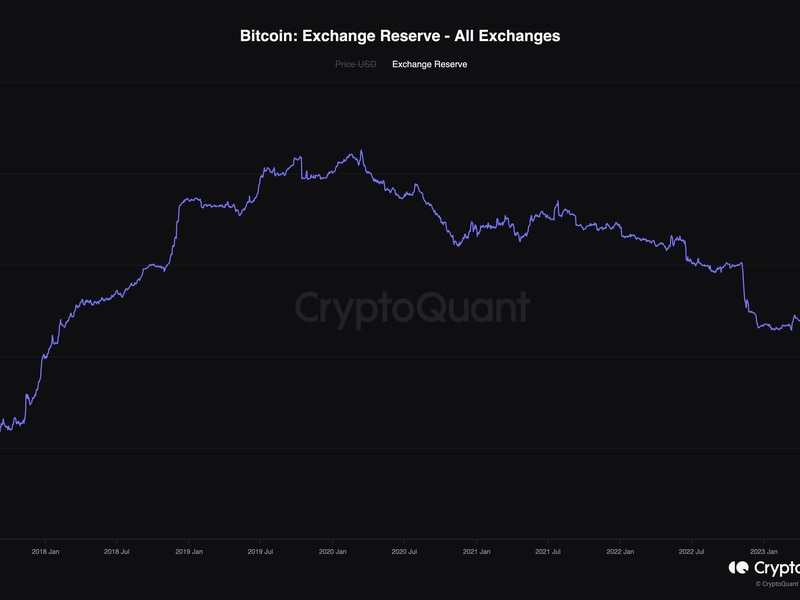U.S. SEC Changes Its Mind on Officially Labeling Digital Assets
The U.S. Securities and Exchange Commission (SEC) took one small step backwards in regulating the crypto sector on Wednesday, when it erased what would have been its first formal definition of “digital asset” from its latest hedge fund rule.
While the SEC had initially included the definition in its 2022 proposal to overhaul mandatory disclosures for hedge funds, the securities regulator yanked it in the final rule approved by the commissioners. The agency included a footnote to explain itself:
“The commission and staff are continuing to consider this term and are not adopting ‘digital assets’ as part of this rule at this time,” the note declared.
The agency is certainly continuing to consider crypto matters, which have taken an outsized role in both its enforcement actions and its ongoing rule proposals, despite its decision to walk this one back. Last month, the regulator did virtually the opposite by reopening a previously proposed rule redefining the term “exchange” and explicitly adding decentralized finance (DeFi) to it.
That revision – which drew sharp criticism from the industry and from two of the five SEC commissioners – is one of several more recent policy moves meant to clearly ensnare crypto into existing rules. The SEC also made another proposal in February that could bar investment advisers from keeping assets at crypto firms.
The original proposed definition for a digital asset in this week’s hedge fund rule hadn’t been extensive or controversial, describing such a thing as “using distributed ledger or blockchain technology” and including “so-called ‘virtual currencies,’ ‘coins’ and ‘tokens.’”
The agency continues without digital assets holding a formal place in its lexicon, though it’s a constant topic in the speeches of Chair Gary Gensler and other SEC officials.
“The SEC is a regulator that requires transparency from its registrants, but it is continuing to withhold regulatory clarity by not defining digital assets,” said Anne-Marie Kelley, a partner at Mercury Strategies who was a longtime SEC official. She suggested the commission may have deleted the definition because “any recognition of digital assets uniqueness as a novel product weakens their litigation stance that digital assets are securities and subject to the SEC securities laws.”
Americans for Financial Reform, a consumer advocacy group that’s usually critical of the crypto sector, had applauded the SEC for setting aside a separate category in the proposed rule for hedge funds disclosing their digital assets.
“Although digital assets are frequently marketed as an alternative to the traditional finance system, hedge funds, private equity firms, and banks have been getting more involved in investing and lending those assets,” the AFR Education Fund wrote in a 2022 comment letter.
But the Securities Industry and Financial Markets Association – an industry lobbying group – complained that the definition’s wording “captures non-security digital asset classes, including commodities, bitcoin and non-fungible tokens, but it is unclear whether the intent of the definition was to capture any and all digital assets as opposed to all securities.” So Sifma had asked that the definition be more specific.
DISCLOSURE
Please note that our
privacy policy,
terms of use,
cookies,
and
do not sell my personal information
has been updated
.
The leader in news and information on cryptocurrency, digital assets and the future of money, CoinDesk is a media outlet that strives for the highest journalistic standards and abides by a
strict set of editorial policies.
CoinDesk is an independent operating subsidiary of
Digital Currency Group,
which invests in
cryptocurrencies
and blockchain
startups.
As part of their compensation, certain CoinDesk employees, including editorial employees, may receive exposure to DCG equity in the form of
stock appreciation rights,
which vest over a multi-year period. CoinDesk journalists are not allowed to purchase stock outright in DCG
.
:format(jpg)/www.coindesk.com/resizer/x37dWM_1ORxU2nCUG8EyVsmvF4Y=/arc-photo-coindesk/arc2-prod/public/3CZRUU6QWVDQ5PSXCNWHUB6CY4.png)
Jesse Hamilton is CoinDesk’s deputy managing editor for global policy and regulation. He doesn’t hold any crypto.
Learn more about Consensus 2023, CoinDesk’s longest-running and most influential event that brings together all sides of crypto, blockchain and Web3. Head to consensus.coindesk.com to register and buy your pass now.
:format(jpg)/www.coindesk.com/resizer/x37dWM_1ORxU2nCUG8EyVsmvF4Y=/arc-photo-coindesk/arc2-prod/public/3CZRUU6QWVDQ5PSXCNWHUB6CY4.png)
Jesse Hamilton is CoinDesk’s deputy managing editor for global policy and regulation. He doesn’t hold any crypto.









